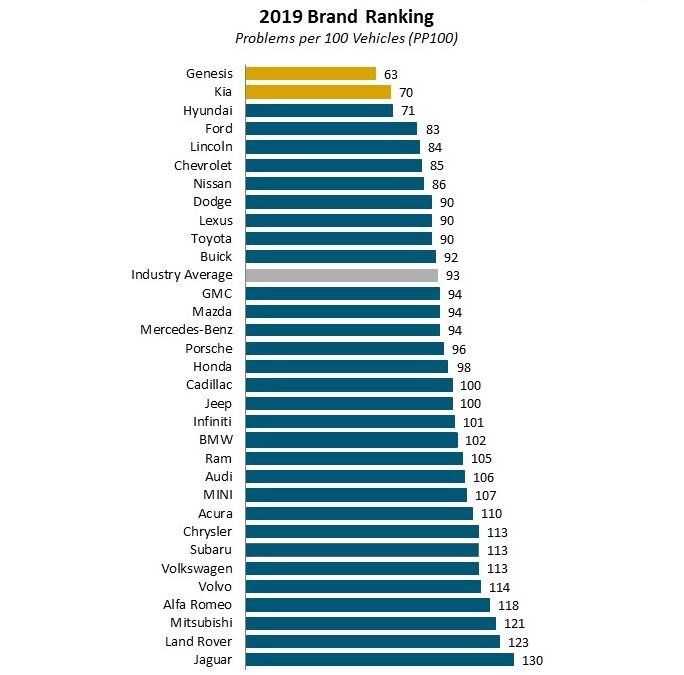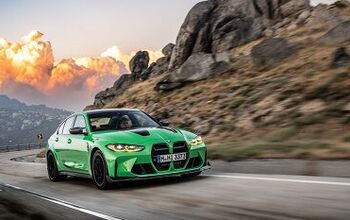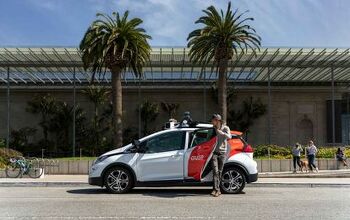New Vehicle Quality Improvements Stall, Koreans Still on Top With J.D. Power
J.D. Power’s 2019 Initial Quality Study (IQS) shows industry-wide problems per 100 vehicles (PP100) failing to improve for the first time since 2014. Genesis, Kia, and Hyundai take the top three spots, improving on their 2018 results, while 18 of the 32 brands studied declined.
Hyundai Motor Group’s brands continue their trend of increasing their advantage over their competitors. The Genesis brand improved from 68 to 63 PP100, Kia from 72 to 70 PP100, and Hyundai from 74 to 71 PP100. Ford and Lincoln round out the top five with 83 and 84 PPH, respectively. Land Rover is most-improved over 2018, improving by 37 PP100, but they still sit second from last in the study at 123 PP100.
The J.D. Power IQS reflects only problems that have been reported by owners in the first three months of ownership. It is important to recognize that it does not claim to accurately predict long-term quality. Since the survey covers all systems on the car, offering the latest and greatest feature content can backfire for a manufacturer in IQS scores. A company offering more established technologies often has a superior chance of performing better.
For instance, Ford’s scores suffered due to customer perception and understanding issues when they offered the double-clutch sequential-manual transmissions in the Fiesta. That’s not to mention how they were destroyed by reports of issues with early versions of the MyTouch infotainment system.
The industry is constantly evolving in their efforts to improve their survey scores. Dave Sargent, Vice President of Global Automotive at J.D. Power said, “Automakers continue to make progress in areas like infotainment that attract a lot of consumer attention. However, some traditional problems crept up this year including paint imperfections, brake and suspension noises, engines not starting and the ‘check engine’ light coming on early in the ownership experience. Also, more people are having issues with their advanced driver assistance systems, which are critical for building consumer trust in future automated vehicles.”
It used to be that Buick and Lexus topped the charts. Within the industry, it was commonly understood that the older buyers of these brands were commonly less discerning and thus easier on the survey scores. As those brands sought a younger median buyer age and offer the latest technologies, they must step up to those buyers’ expectations.
Korean brands seem to be effectively reusing the playbook that the Japanese brands wrote when they came to North America. Initial quality, both perceived and actual, lagged the established contenders. But, with focused efforts, they rose to the top and became the benchmark for quality. While the IQS survey does not paint a complete picture of quality and reliability, it is an indicator of the progress of brands.
Everyone should be paying attention to the improvements the Chinese brands have been making as well. I was paying attention when they first started bringing cars to the North American International Auto Show. I remember looking around and underneath them back in 2006. The primitive design and assembly quality were laughable. That evolved into decent pseudo-copies of respected cars and is now at a point that they cannot be disregarded.
Before you say that you can’t even buy a Chinese car in the U.S. yet, just look at who received a Silver award for 2019 Plant Assembly Line Quality… General Motors’ Yantai Dongyue 2, China (North), who makes the Buick Envision for the U.S.
For a full rundown of J.D. Power’s Initial Quality Study rankings, check out the website.
[Images: Genesis Motors; J.D. Power]
Following 10 years in Toyota's Production Engineering division, Anthony spent 3 years as a Vehicle Dynamics Engineer for FCA. From modest beginnings in autocross, he won a NASA SpecE30 National Championship and was the 2017 Pirelli World Challenge TC Rookie of the Year. Aside from being a professional racecar driver, he is a private driving coach and future karaoke champion.
More by Anthony Magagnoli
Latest Car Reviews
Read moreLatest Product Reviews
Read moreRecent Comments
- AZFelix I shall fully endorse the use of autonomous cars on public roads once they have successfully completed my proposed Turing test for self driving vehicles. This test requires the successful completion of an at fault incident and accident free 24/7 driving session in Buffalo and upstate New York from October 1st until March 31st, and throughout the city of Jakarta, Indonesia for one consecutive year. Only Level 1 and Level 5 vehicles are permissible.
- Lou_BC I'd go Rav4. No Mazda dealer in my town and from what I've seen, Mazda's tend to rust.
- Steve Jacobs I've got a bright Red Kia EV6. Easy to find in a parking lot.
- MKizzy Gently used EV6's under $30K aren't hard to find and have the range and style to almost intrigue me into taking the EV plunge. However, I'll wait for a mid-sized non-luxury EV sedan or wagon which is not a tablet housing a car (Model 3) or sacrifices too much usable space for the sake of style (Ioniq 6) before I go electric. I'm not holding my breath.
- Arthur Dailey Am currently comparing both vehicles. Some issues not addressed in the article 1) the wait times for most RAV4's are currently considerably longer, 2) RAV4's are among the most stolen vehicles in my area (the GTA), 3) Mazda has a superior warranty. Manufacturing locations are perhaps a toss up. For the majority of these vehicles sold in the Canadian market from what I can ascertain, CX-5's are manufactured in Japan, and RAV4's in Alliston Ontario. One area where I will disagree with Matt is in the upholstery. I far prefer cloth to leather. With grandchildren and a dog, there is far more chance that the leather will be cut or scratched. And leather, particularly in black is too hot in the summer and very cold when you first sit on it during a Canadian winter. Cloth is the winner in that competition, but still an inferior choice to rich 1970's style velour upholstery.



































Comments
Join the conversation
Three months doesn’t even cut it! If I get a call from D.J. Powerless in September asking about my Accord, I’ll ask them to call me in June, 2022 to get my opinion, then hang up!
Has anyone shown the result of J.D. Powers, Consumer Reports, and True Delta at the same time points? I have a sneaky feeling that anything 'Murican built with a frame and/or a V-8 will score quite well. For the rest; Japanese all the way. To be fair, and not forgetten, some of the Europeans may score well too. Than again, this is TTAC so test methodology will be questioned and we will be regaled with anecdotal stories of big 3 vehicles that went 300,00 miles with just oil changes and one set of new brake pads.